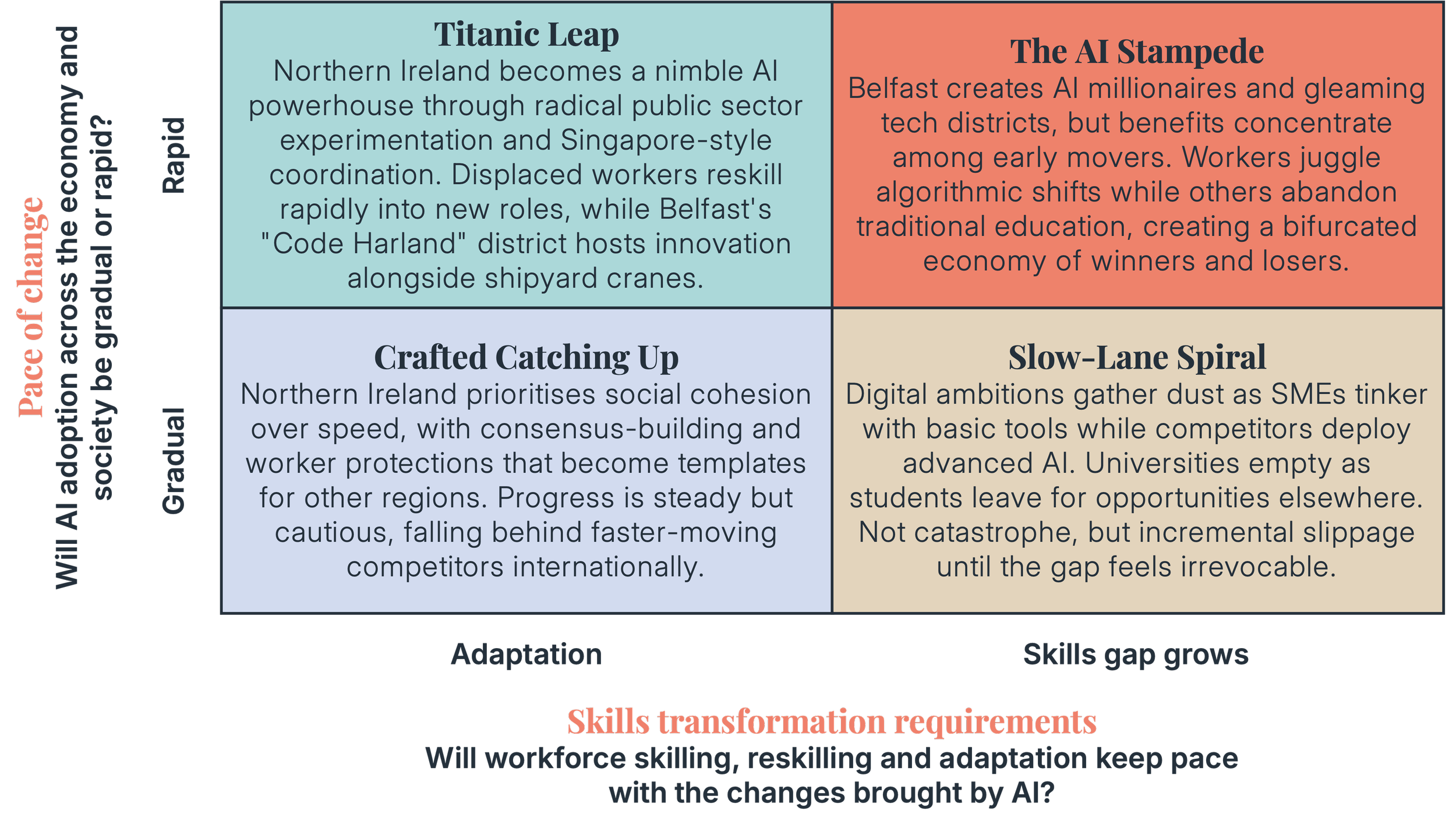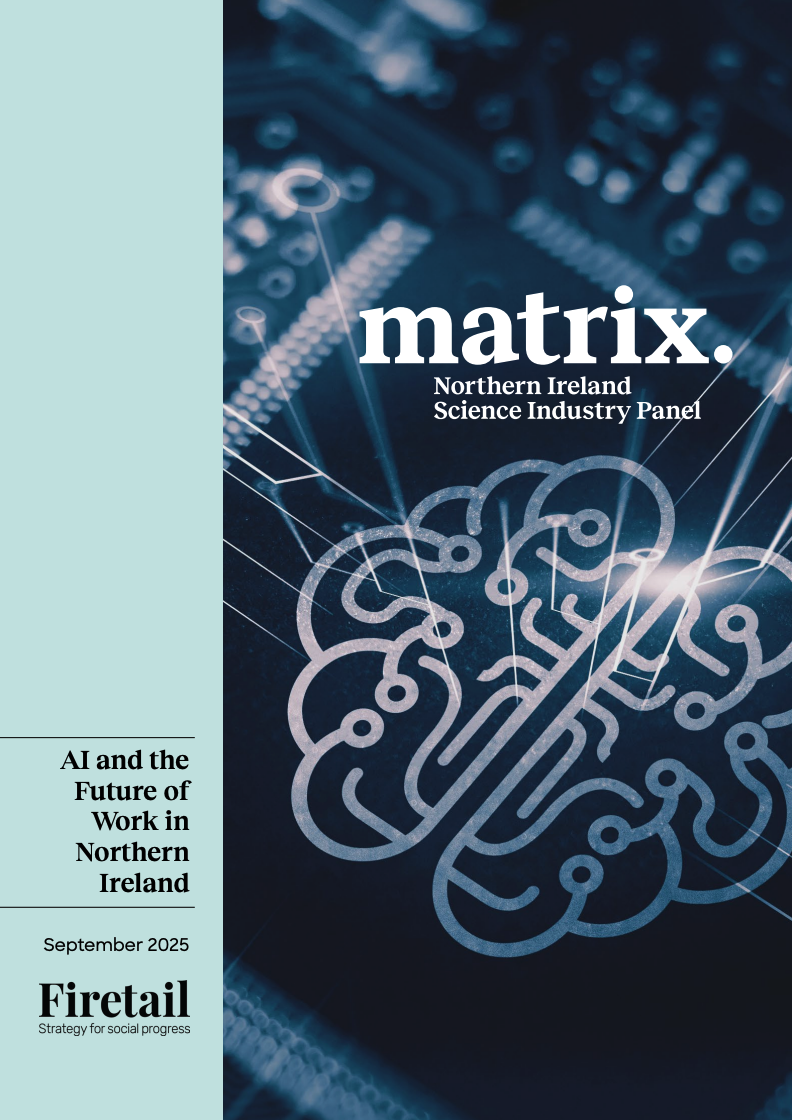
The Matrix Panel and the Department for the Economy (NI)
AI and the Future of Work in Northern Ireland
Source: ITV News/ UTV - AI could be worth billions to economy by 2030 but fears Northern Ireland won't take opportunity (view here)
Artificial Intelligence is no longer a horizon technology—it has arrived and is already transforming the nature of work. As capabilities evolve from generative AI that augments human work to agentic AI capable of autonomous decision-making and complex task execution, organisations across every sector face both unprecedented opportunities and significant disruption.
Matrix, on behalf of the Northern Ireland Department for the Economy, commissioned this foresight-driven study to explore how Northern Ireland can position itself at the forefront of AI-driven economic transformation whilst addressing the profound societal and ethical questions arising from AI’s impact on work, workers, and the nature of employment itself.
After a thorough landscape review and extensive stakeholder interviews, we developed a list of 12 drivers, that are likely to have a significant impact on AI and the future of work in Northern Ireland. We then ran a collaborative scenario planning exercise with key stakeholders from across industry, academia, and government, both within and outside Northern Ireland. Through the discussions, two drivers were selected as the key axes of uncertainty - the drivers which will have a high level of influence, but where there is a high degree of uncertainty regarding the range of possible outcomes. These were:
Will AI adoption across the economy and society be gradual or rapid?
Will workforce skilling, reskilling and adaptation keep pace with the changes brought by AI?
The four scenarios developed for Northern Ireland in 2030 are shown on the diagram below. The report concluded that whilst Northern Ireland has several distinct advantages to benefit from AI adoption, there are key strategic challenges that must be overcome. Read the full report on the link below to find the ten recommendations to help overcome these obstacles.



